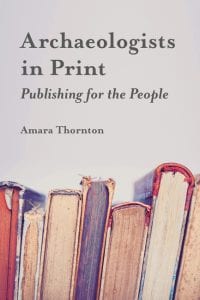The story of Citizen Science
By Alison Fox, on 15 October 2018
Today’s guest post is by Muki Haklay, Professor of GIScience at UCL, and one of the editors of the brand new book Citizen Science: Innovation in Open Science, Society and Policy It originally appeared here. and is re-used with permission.
Today marks the publication of the book Citizen Science: Innovation in Open Science, Society and Policy. The book emerged from the first conference of the European Citizen Science Association in Berlin, in 2016. While the summary of the conference is available in a journal article in Citizen Science: Theory and Practice, the book is providing a set of 31 chapters that cover different issues in the interface between citizen science, open science, social innovation, and policy.
Shortly after the conference, Aletta Bonn and Susanne Hecker, who coordinated it, suggested the development of a book that will capture the breadth of the field of citizen science that the conference captured. Within a month, the editorial team which include Susanne Hecker, Anne Bowser, Zen Makuch, Johannes Vogel, Aletta Bonn, and myself started to work on the concept of the book and the appropriate publisher.  We were committed to publishing the book as open access so it can be read by anyone who wishes it without limitations, and also so the chapters from it can be used widely. By publishing with UCL Press, which agreed to publish the book without charges, we had additional resources that we have used to work with Madeleine Hatfield of Yellowback to ensure that the book chapters are well edited and readable,and with Olaf Herling, a Berlin graphic designer, who helped us in developing and realising the graphic design of the book.
We were committed to publishing the book as open access so it can be read by anyone who wishes it without limitations, and also so the chapters from it can be used widely. By publishing with UCL Press, which agreed to publish the book without charges, we had additional resources that we have used to work with Madeleine Hatfield of Yellowback to ensure that the book chapters are well edited and readable,and with Olaf Herling, a Berlin graphic designer, who helped us in developing and realising the graphic design of the book.
The chapters made quite a journey – they were submitted in late 2016, and were peer-reviewed and revised by mid-2017. As always with such an effort, there is a complex process of engaging over 120 authors, the review process, and then the need to get a revised version of the chapters. This required the editorial team to coordinate the communication with the authors and encourage them to submit the chapters (with the unavoidable extensions!). Once the chapters were in their revised form, they continued to be distilled – first with comments from the editorial guidance by Madeleine, but also with suggestions from Mark Chandler from Earthwatch, who provided us with an additional review of the book as a whole.

Susanne Hecker, the lead editor, put in a lot of time into communicating with the authors, the publishers, and the professional editors. Even as late as two months ago, we had the need to check the final proofs and organise the index. All that is now done and the book is out.
The book contains 31 chapters that cover many aspects of citizen science – from the integration of activities to schools and universities to case studies in different parts of the world.
Here is what we set out to achieve: “This book brings together experts from science, society and practice to highlight and debate the importance of citizen science from a scientific, social and political perspective and demonstrate the innovation potential. World-class experts will provide a review of our current state of knowledge and practical experience of citizen science and the delivery of will be reviewed and possible solutions to future management and conservation will be given. The book critically assesses the scientific and societal impact to embed citizen science in research as well as society.
The aim of this volume is to identify opportunities and challenges for scientific innovation. This includes discussions about the impact of citizen science at the science-policy interface, the innovative potential of citizen science for scientific research, as well as possible limitations. The emphasis will be to identify solutions to fostering a vibrant science community into a changing future, with actors from academia and society. Five main sections are envisaged with an editorial introduction and a thorough final synthesis to frame the book.
Innovation in Science: What are the governance and policy frameworks that will facilitate embedding citizen science in agenda setting, design and data collection of research projects and communication? What are innovation opportunities and challenges and where support is needed? How to ensure data quality and IP rights?
Innovation at the Science-Policy interface: What are the opportunities for citizen science to provide an input to better decision making? How is participation ensured across society and how does it lead to enhanced problem-solving?
Innovation in Society: How can citizen science lead to empowerment and enhanced scientific literacy and increase science capital? What is the social transformation potential impact of citizen science?
Innovation in Technology and Environmental Monitoring: What policy and technical issues citizen science and mobile sensor technology bring? How can it contribute to advances in environmental monitoring within existing and emerging regulations? What policy and practical framework can facilitate or harm this?
Innovation in Science Communication and Education: How have new media transformed science and what are the implication to scientists, public and science funders? How can new techniques open new opportunities and to whom? ”
The final book does not follow these exact sections, but the topics and questions are the same.
The book is free and you can now download it from UCL Press website – let us know what you think of it!
 Close
Close


